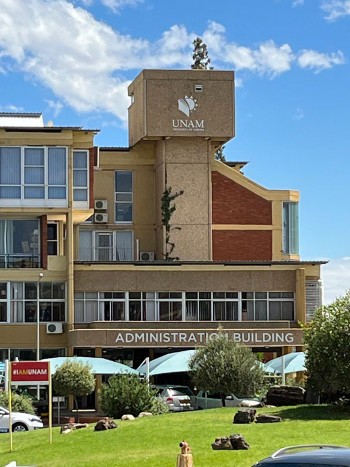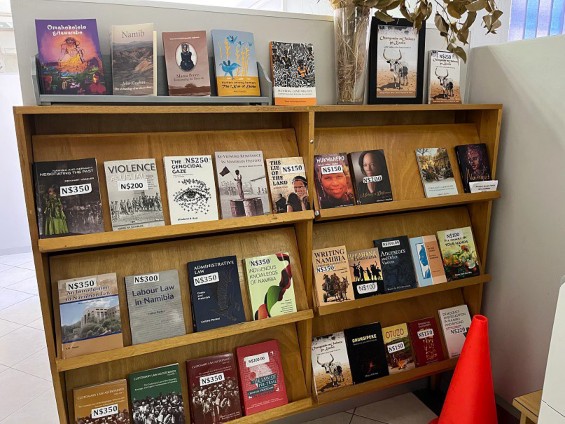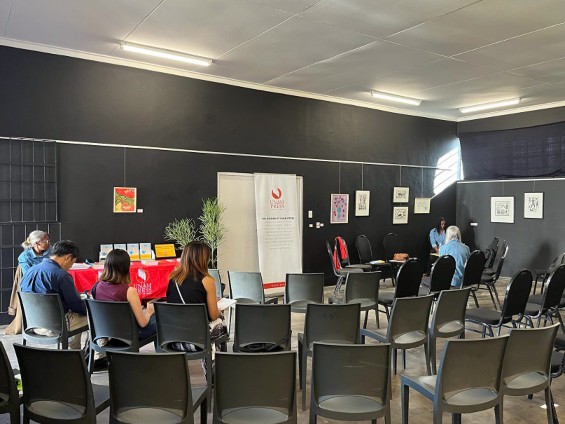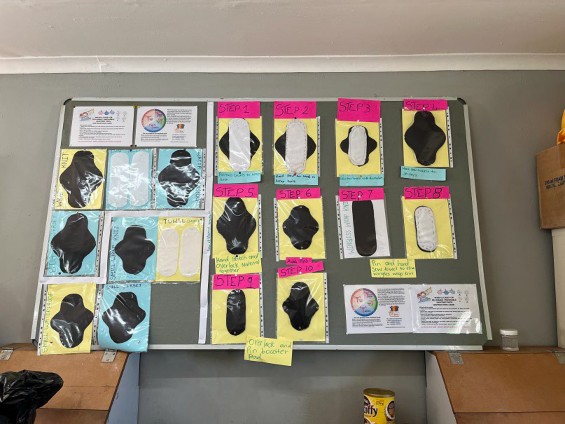Report on the Dispatch to Namibia: Exploring the Potential of Scientific Research (S)
Koji Hayashi
Specially Appointed Research Fellow
The Center for African Area Studies
Kyoto University

From November 4 to 13, 2022, I visited to the Republic of Namibia. Accompanied by Prof. Takada, the project representative, I had meetings with relevant personnel at the University of Namibia in Windhoek, the capital of Namibia, and also visited the National Library and Archives of Namibia.
At the University of Namibia, we had a meeting with Dr. Romie Nghitivelekwa of the Department of Sociology, University of Namibia, who is a collaborator of the Scientific Research (S), to discuss this project and future educational and research cooperation. We also visited the University of Namibia Press (UNAM PRESS) to attend a meeting to discuss about the Book Launch to celebrate the publication of the book “Hunters among farmers: The !Xun of Ekoka” by Prof. Takada. At the lecture commemorating the publication, which was held at a later date, in addition to many in-person participants, there were also participants from overseas via Zoom, and together with Prof. Takada’s lecture, the latter half of the event was very active in discussion. For example, related to the content of his lecture, “How can we listen to the voices of minority communities, ethnic groups, and generations?” “How do people’s life stories (life histories) relate to national histories?” “What are the land use characteristics of (former) hunter-gatherers?” These topics were very stimulating for me, who will be involved in this project as well as conducting research in other regions such as Cameroon. I also made brief remarks to the audience at the end of the lecture. It was fortunate that I had an opportunity to exchange views with UNESCO officials on this project and sanitation issues after the official lecture.

(Center left)

At the National Library and Archives of Namibia, in addition to the general collection, the staff member in charge gave us a tour of the underground storehouse containing newspapers and publications from Namibia’s pre/post-independence period as archival materials. On the other hand, a library of the Namibia Scientific Society, which has a collection of anthropological and other academic literature including San, has a number of interesting books, which I would like to visit more often if time permits.

Toward the end of the reporter’s stay in Windhoek, I visited Jakob Marengo Secondary School, a private school run by Kenny Abraham, the husband of Ritsuko Abrahams Shimabukuro, a Japanese resident in the country. As part of a class initiative, all students, both boys and girls, were encouraged to make their own “handmade reusable sanitary napkins” as part of their understanding of menstruation in sex education. And we were introduced to the details of the project with the teachers and students in charge. Menstruation is an internationally recognized issue related to sanitation, hygiene, and human rights, and we were strongly impressed by the educational policy that seems to be leading the way and the attitude of the students who embraced it.
As mentioned above, during my stay in Namibia, I accompanied Prof. Takada at various places, as I did during my trip to Botswana, and I was fortunate to be able to share his personal connections and experiences. It is regrettable, however, that my stay in Namibia was again too short to visit the areas where the project’s subjects, such as hunter-gatherers and agro-pastoralists, live. Nevertheless, it was a great benefit for me to be able to experience some of the climatic, cultural, and historical differences between Namibia and Cameroon, which I have been involved in for many years, and to glimpse the characteristics of each country in terms of education and institutions, which are the core of the project.
